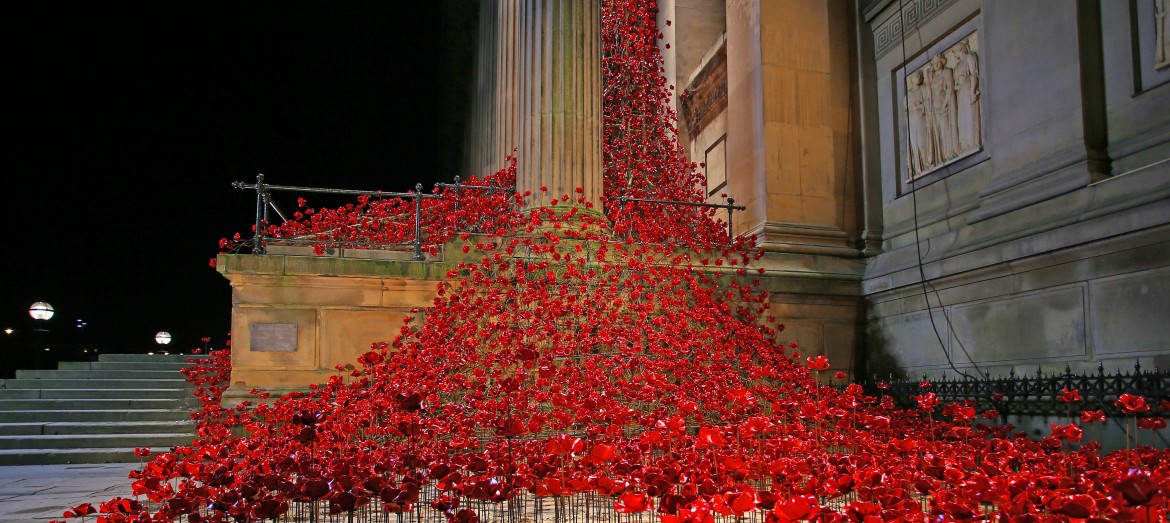Remembrance Sunday in London, the Opium of the Poppies
Great Britain Remembrance Sunday is over us. As a young Italian man living in London for 20 years, I can say that poppies, year after year, are becoming an increasingly polarizing symbol.
 Poppies on crosses are placed in position in the grounds of Westminster Abbey in London ahead of Remembrance Sunday – Anthony Devlin/PA Wire
Poppies on crosses are placed in position in the grounds of Westminster Abbey in London ahead of Remembrance Sunday – Anthony Devlin/PA WireGreat Britain Remembrance Sunday is over us. As a young Italian man living in London for 20 years, I can say that poppies, year after year, are becoming an increasingly polarizing symbol.
I have lived in the capital of the remarkable country that is Britain for some 20 years now, long enough to learn a thing or two about it. As a young Italian man, hungry for art and music, I grew up in the spell of the supposed superiority of its popular culture.
This place is so many interesting things at once.
In random order: a Britpop-spreading and Iraq-bombing imperialistic quasi-winner of two world wars; an indefatigable purveyor of pop culture and market ideology, permanently torn between Europe and the Atlantic; a profiteer and abolisher of slavery; the inventor of private property and codifier of class division and individualism, but also of unionism; a historic safe haven to international dissidents and, at the same time, luxurious training ground to their persecutors.
In short, Britain is an overabundant source of the main traits of what Western identity purports to be. An extraordinary place indeed.
It’s November again, and Remembrance Sunday is over us. In this eerie, post-atomically mild temperature, we see the West London streets (in Newham, where I live, they are barely noticeable) swarming with those blood red lapels again. Of course, I’m talking about poppies, which, year after year, are becoming an increasingly polarizing symbol.

The poppies are a charity item; to wear them means that you remember the sacrifice of the fallen of the present and past wars. It is a tribute of loving memory for those who were sent to fight in WWI, aka that senseless abattoir that was supposed to end all wars (!). But their positive symbolism as gratefully due tribute is largely outdone by their abrasively urgent political necessity. Alongside the overabundant usage of the noun “hero” and the adjective “heroic” by the mainstream media.
It isn’t difficult to see why. Not to call the veterans of the many, frankly indefensible, British campaigns of the last 20 years “heroes” would sound irretrievably offensive not only to those who lost their lives, but also to those who had grown up in the mythology of military honor. And maybe coming back home horribly maimed or to a likely future of unemployment and post-traumatic stress.
But to a foreigner — and in London there are quite a few — they come across as a little red barrier, the ultimate obstacle to integration. The periodical waves of intolerance toward those not wearing them is, too, the symptom of a division between ‘us’ and ‘them.’

As an unrepentant Marxist, I put no trust in national identity, and feel much relieved for that. But if there were anything to be really proud in being Italian in these stinking years of post-Berlusconism, that would be the complete lack of militaristic pride in contemporary Italy. Of course, that is not due to climate, mozzarella di bufala, great tenors or having had a pathetic royal family.
Patriotism and nationalism have always been a prerogative of the unsatisfied Right, whose frustration was due to the undisputable ‘backwardness’ of the country. Maybe the fact of having been dominated for centuries, after laying the foundations of Western civilization, gave us a healthy detachment from the need to subjugate others and the relative pomp and circumstance that goes with it.
Whatever the reason, we can — yes, very proudly — fulfill Brecht’s immortal words: “Unhappy the land that is in need of heroes.”
One last thought, before I conclude. The political use of history that the British have unparalleled skill at deploying is fascinating and dangerous at the same time, particularly now that the government calls “morally indefensible” the reluctance to bomb Syria.
Benedetto Croce, the most famous Italian philosopher of the 20th century (he was a liberal, of course; the greatest was a guy called Antonio Gramsci, who rotted captive in Mussolini’s jails most of his brief life) used to say: “Every history is contemporary history.” He is right, if maybe not in the sense he intended. But it is somehow hard to deny that we constantly (re)write history in order to legitimize the present.

I consigli di mema
Gli articoli dall'Archivio per approfondire questo argomento